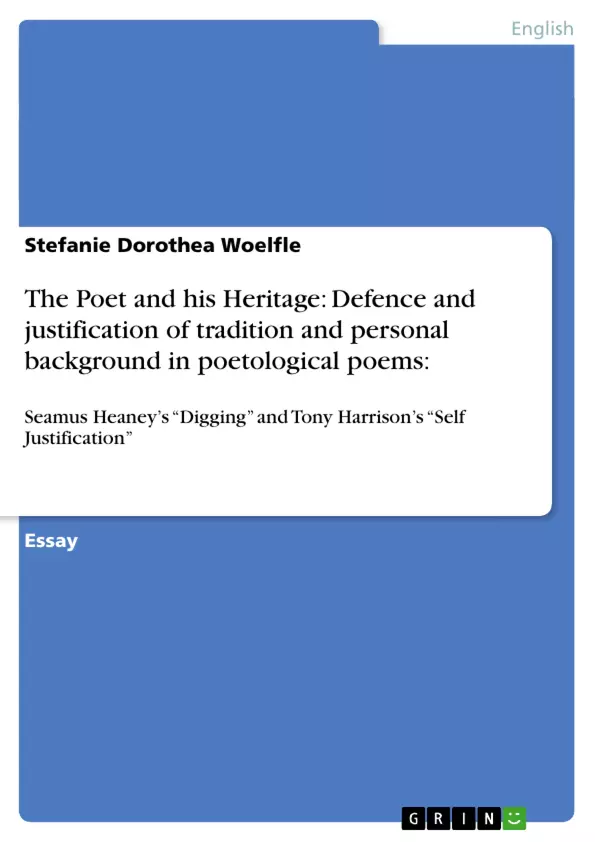1. Introduction
The treatment of a poet’s personal experience in relation to his profession as an artist in society by using poetry as a means of personal expression is one characteristic aspect of poetological poetry throughout history. The poems “Self Justification” by Toni Harrison and “Digging” by Seamus Heaney exemplify this aspect. In these poems both authors relate their profession as artists to their individual background: whereas Heaney sees himself as a successor of his ancestors and hence tries to place his role as a poet in the course of his country’s culture and family traditions, Harrison portrays himself in the surroundings of an inarticulate working-class community and relates his need for self-justification to that circumstance.
In this paper, I will first identify the individual backgrounds apparent from the poems and will then describe how they are presented within the poems by their respective speakers. It will become clear that the poems´ messages are largely autobiographical (Still, to avoid misunderstandings, I will refer to the respective authors as “speaker” or “persona”). Furthermore, I will show how the speakers of the poems defend themselves and then compare them in their individual conclusions. Eventually, I will demonstrate that the solution delivered by the speaker in “Digging” leads to a mode of justification which is in line with his background whereas the speaker in “Self-Justification” seeks to prove his eloquence as he is not in line with his background.



